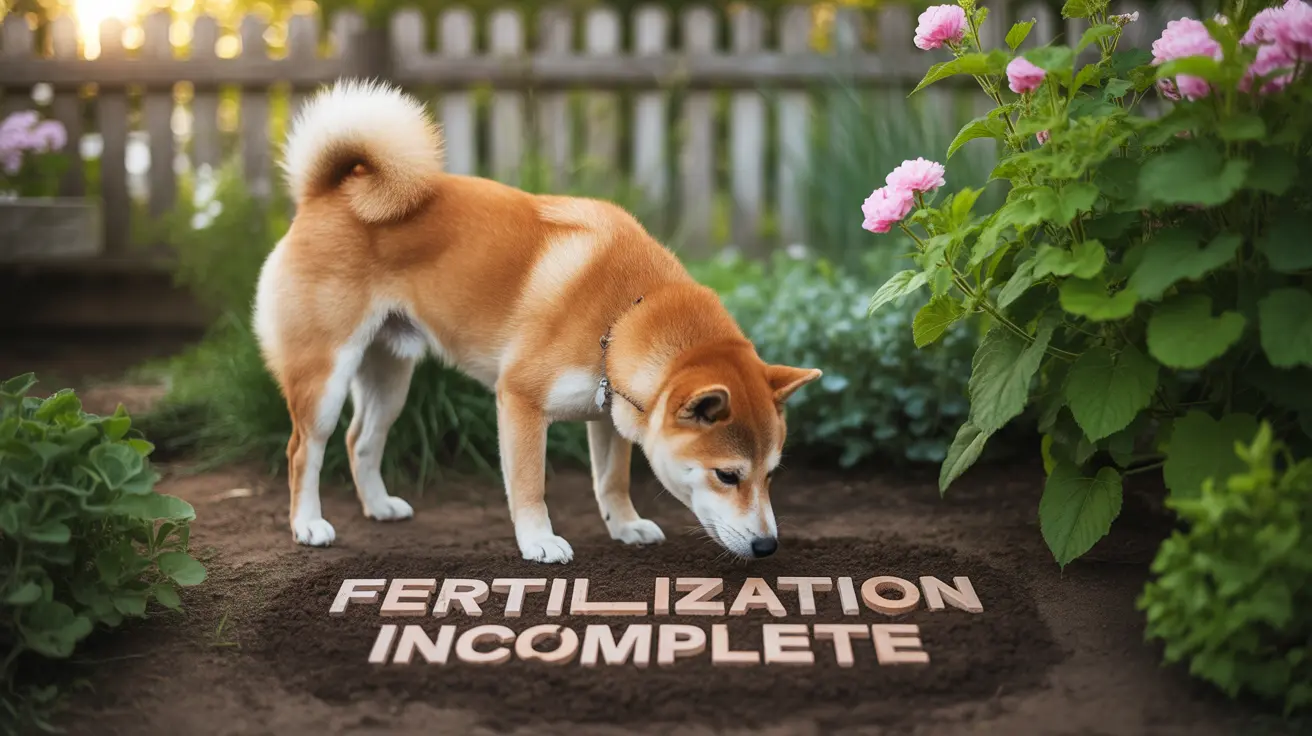Many gardeners wonder about using readily available materials as fertilizer, including dog waste. While the idea of recycling pet waste might seem environmentally friendly, the reality is more complicated and potentially dangerous. Let's explore the science behind dog waste as fertilizer and why experts strongly advise against this practice.
Understanding the composition of dog waste and its effects on soil and human health is crucial for both pet owners and gardeners. Unlike beneficial manures from herbivores like cows and horses, dog waste presents unique challenges and risks that make it unsuitable for garden use.
The Composition of Dog Waste vs. Traditional Fertilizers
Dog waste differs significantly from traditional animal manures used in gardening. It contains approximately 2½ times more nitrogen than cattle manure but only half the potash, creating an unbalanced nutrient profile that can harm plants rather than help them grow.
The highly acidic nature of dog waste can damage grass and plants, often causing 'burn spots' on lawns. This is due to the concentrated nitrogen content and acidic pH level, which stems from dogs' carnivorous/omnivorous diets.
Health Risks and Safety Concerns
The most compelling reason to avoid using dog waste as fertilizer is the serious health risks it poses. Dog feces can harbor dangerous pathogens, including:
- Toxocara canis (roundworms)
- Harmful bacteria
- Parasites
- Viruses
These pathogens can survive in soil for extended periods and pose significant risks to humans, especially children. Particularly concerning is the potential for Visceral Larval Migrans and Ocular Larval Migrans, conditions where parasitic larvae can migrate through organs and potentially cause blindness.
Environmental Impact and Proper Disposal
Improper management of dog waste can lead to serious environmental issues. When left on the ground or incorrectly disposed of, it can:
- Contaminate water sources
- Contribute to harmful algae blooms
- Create persistent soil contamination
- Lead to excess nutrient runoff
The proper disposal of dog waste involves either bagging it for trash collection or using specialized pet waste composting systems designed to reach temperatures high enough to kill pathogens (above 140°F).
Safe Alternatives for Garden Fertilization
Instead of using dog waste, consider these safe and effective fertilizing alternatives:
- Composted herbivore manures (cow, horse, chicken)
- Commercial organic fertilizers
- Plant-based compost
- Pasteurized manure products
- Well-aged garden compost
Frequently Asked Questions
Is dog poop good for my garden, or can it harm my plants?
Dog poop is harmful to gardens. Its high acidity and unbalanced nutrient content can damage plants, while dangerous pathogens pose serious health risks.
How do I properly dispose of dog waste to avoid environmental contamination?
Bag dog waste and dispose of it in regular trash, use a designated pet waste collection service, or invest in a specialized dog waste composter designed for high-temperature processing.
Can dog poop be safely composted for use in non-edible gardens?
Regular composting cannot safely process dog waste. Only specialized systems that maintain temperatures above 140°F can effectively eliminate pathogens, making standard composting unsafe.
Why is dog waste not recommended as a fertilizer compared to other animal manures?
Dog waste has an unbalanced nutrient profile, high acidity, and contains dangerous pathogens. Unlike herbivore manure, it lacks the beneficial properties that make traditional manures valuable for gardening.
What are the health risks to humans and pets if dog waste is not properly managed?
Improper management of dog waste can lead to serious health issues including parasitic infections, bacterial diseases, and conditions like Visceral and Ocular Larval Migrans, which can affect various organs and potentially cause blindness.
Understanding the risks associated with dog waste and following proper disposal methods helps protect both human health and the environment. For garden fertilization, stick to proven, safe alternatives that will nurture your plants without putting anyone at risk.






